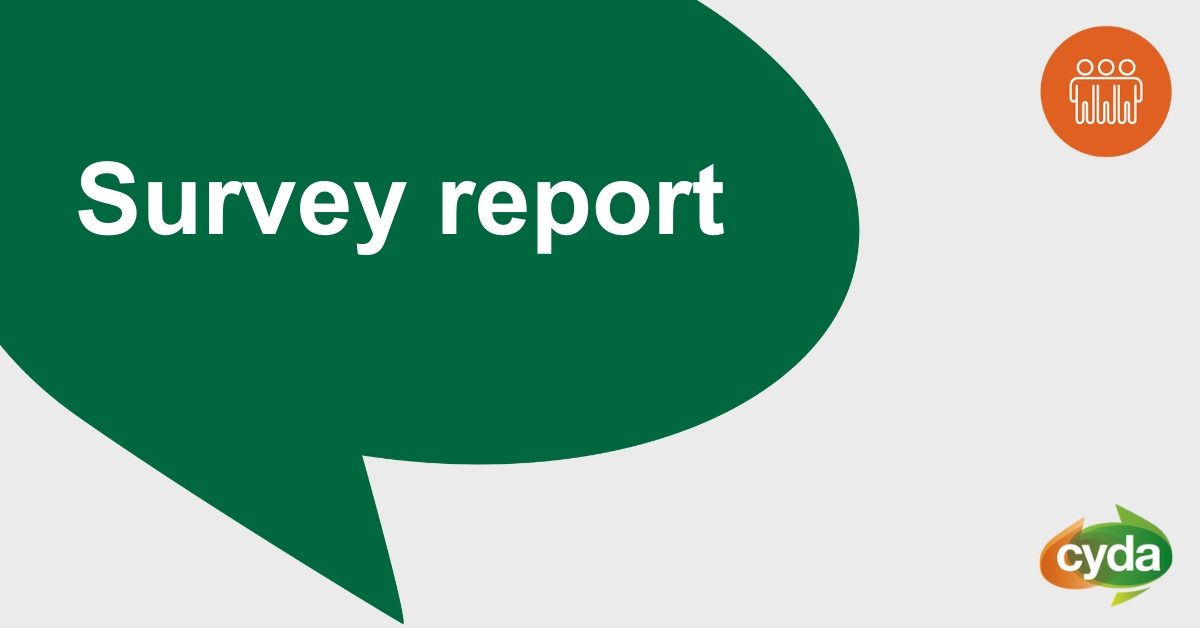⚠️ Content note: Bullying and discrimination.
Summary in Auslan 👉
Summary in Auslan 👇
About this survey
We have been gathering feedback on educational experiences from its members via formal surveys since 2010. These surveys have consistently found that students with disability are excluded in their education. For the first time this survey sought to specifically focus on the voices and perspectives of young people in education.
Prior surveys have elicited some responses from this group but have tended to be primarily completed by families and caregivers. The survey was also provided with Auslan interpretation and captioned videos. Survey questions were about the types of services and supports accessed, how welcoming and supportive schools are, whether students experience exclusion and bullying and how well-equipped teachers and schools are perceived to be in meeting the needs of children and young people with disability. Responses were collected from October 2022 to January 2023. CYDA partnered with researchers from the Melbourne Graduate School of Education, University of Melbourne and Public Service Research Group, UNSW Canberra to analyse the data and prepare this report.
Results
The results suggest that a significant proportion of students with disability do not feel included in all activities within their schools. 70% of respondents indicated that they felt excluded from events and activities within their schooling. Some of this exclusion was experienced around activities such as camps and excursions, but others reported this within everyday teaching activities or social interactions within schooling.
65% of those who responded to a question about bullying reported that they had experienced this in school. Often bullying was reported as being due to their disability or other identity differences. Some of this bullying is verbal in nature, but there are also reports of physical bullying, sometimes resulting in significant injuries. For some this bullying extended to out of school settings and into the realm of cyberbullying through social media. For some this bullying experience had led them to not want to attend school or avoid using disability aides in school settings.
When asked what might improve school experiences, a large majority suggested that school staff would benefit from greater training. Many felt that teachers do not have the right sort of training and skills to be able to interact with and make accommodations for students with disability. A number of respondents also wanted to see more teachers with personal experience of disability or to be trained by people with disability so that they better understand the types of barriers and enablers to inclusive education. Respondents also acknowledged that teachers need to be given the time and resources to apply any training in a classroom context. While a number of regulations and policies exist to facilitate inclusive education within Australian schools, it is clear that gaps still exist and students with disability still experience exclusion and physical and psychological bullying. Such experiences present substantial barriers to full and equal participation in education and this can have lifelong impacts in terms of health, wellbeing and social inclusion.


